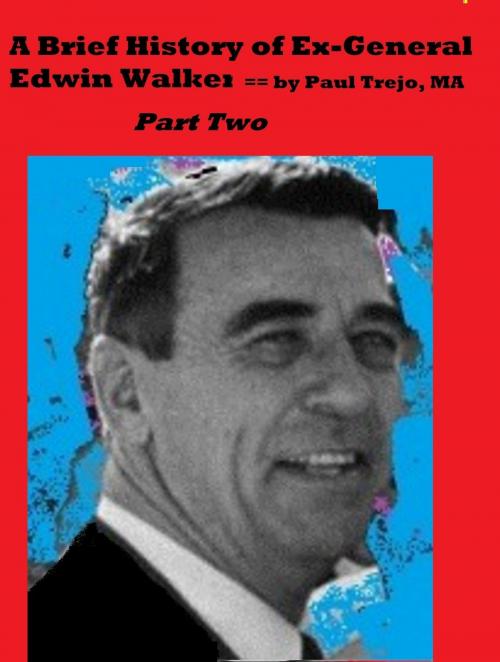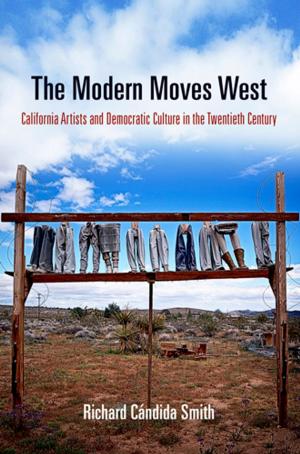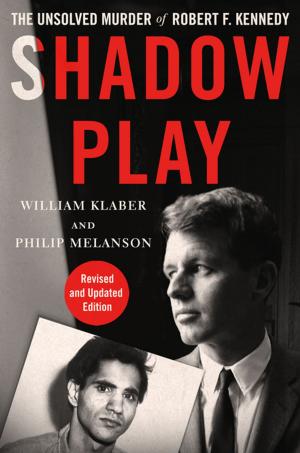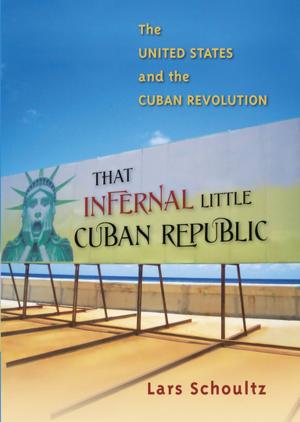| Author: | Paul Trejo | ISBN: | 9781311585776 |
| Publisher: | Paul Trejo | Publication: | December 13, 2014 |
| Imprint: | Smashwords Edition | Language: | English |
| Author: | Paul Trejo |
| ISBN: | 9781311585776 |
| Publisher: | Paul Trejo |
| Publication: | December 13, 2014 |
| Imprint: | Smashwords Edition |
| Language: | English |
Part Two -- Leading the Riots at Ole Miss University: American History has so far overlooked one of the most intriguing military and civilian figures of the 20th century, the resigned Major General Edwin Anderson Walker, who was the only U.S. General to resign his commission in the 20th century. Few historians recall that Walker was responsible for leading Federal Troops to racially integrate Little Rock High School in Arkansas for President Eisenhower in 1957, and also for leading riots to racially segregate Ole Miss University in Oxford, Mississippi against President Kennedy in 1962. Few historians recall that Edwin Walker first resigned his command under President Eisenhower in 1959, after he was converted to the John Birch Society, or that Eisenhower denied that resignation and gave Major General Edwin Walker his greatest commission -- a command over 10,000 Troops and their dependents in Augsburg, Germany, defending the Berlin Wall. A mythology has arisen that Walker was "fired" from his Germany command by JFK because of his Bircher opinions, when actually Walker was relieved of his command by the Joint Chiefs because of a long history of scandals with the US Army newspapers in Germany, who were more likely spying on Edwin Walker because he had never married and was presumably gay. JFK offered Walker another position in Hawaii, but Walker submitted his resignation to the US Army a second time in November 1961, and this time the US President accepted it. For the first time in his adult life, Edwin Walker was a civilian, and his clash with the political climate of the Civil Rights movement in 1961-1963 presents a surprising slice of American history that has received almost no publicity in the past half-century. This is more surprising because the name of Edwin Walker appears more than 500 times in the Warren Commission volumes investigating the assassination of JFK, since Edwin Walker was briefly a suspect in the JFK assassination. History student Paul Trejo has studied with eminent historian H.W. Brands in his research of the personal papers of Edwin Walker at UT Austin to provide a rare glimpse into the life and times of Ex-General Edwin Walker -- the only US General to resign in the 20th century.
Part Two -- Leading the Riots at Ole Miss University: American History has so far overlooked one of the most intriguing military and civilian figures of the 20th century, the resigned Major General Edwin Anderson Walker, who was the only U.S. General to resign his commission in the 20th century. Few historians recall that Walker was responsible for leading Federal Troops to racially integrate Little Rock High School in Arkansas for President Eisenhower in 1957, and also for leading riots to racially segregate Ole Miss University in Oxford, Mississippi against President Kennedy in 1962. Few historians recall that Edwin Walker first resigned his command under President Eisenhower in 1959, after he was converted to the John Birch Society, or that Eisenhower denied that resignation and gave Major General Edwin Walker his greatest commission -- a command over 10,000 Troops and their dependents in Augsburg, Germany, defending the Berlin Wall. A mythology has arisen that Walker was "fired" from his Germany command by JFK because of his Bircher opinions, when actually Walker was relieved of his command by the Joint Chiefs because of a long history of scandals with the US Army newspapers in Germany, who were more likely spying on Edwin Walker because he had never married and was presumably gay. JFK offered Walker another position in Hawaii, but Walker submitted his resignation to the US Army a second time in November 1961, and this time the US President accepted it. For the first time in his adult life, Edwin Walker was a civilian, and his clash with the political climate of the Civil Rights movement in 1961-1963 presents a surprising slice of American history that has received almost no publicity in the past half-century. This is more surprising because the name of Edwin Walker appears more than 500 times in the Warren Commission volumes investigating the assassination of JFK, since Edwin Walker was briefly a suspect in the JFK assassination. History student Paul Trejo has studied with eminent historian H.W. Brands in his research of the personal papers of Edwin Walker at UT Austin to provide a rare glimpse into the life and times of Ex-General Edwin Walker -- the only US General to resign in the 20th century.















